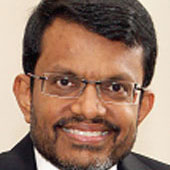Dateline Singapore: Market Economies and Social Inclusion
Are social safety nets inherently incompatible with market-based incentives to work and save?
June 15, 2012
It is sometimes said that Western economies adopted the welfare state to save capitalism from itself. There is some truth to this. But the welfare state is now under pressure from rising expectations and aging populations.
Globalization has added a new twist to these challenges. Free trade and open markets are being blamed for widening income inequality and the stagnation of wages. Hence, the rise in protectionism and xenophobia in many parts of the world.
Singapore has always subscribed to the principle of social inclusion. But the experience of other countries has given Singapore much reason to be cautious in the design of its social safety nets.
The growth of the welfare state has been associated with an eroding work ethic, a deteriorating fiscal position and a growing entitlement mentality. In Singapore, we strongly believe that self-reliance is the basis for a healthy work ethic. It is what drives private initiative and enterprise.
How does Singapore foster social inclusion, while safeguarding the culture of self-reliance? First, we provide massive subsidies for education. It is well known that education promotes social mobility. But in many parts of the world, this has not been the case because there are wide differences in educational opportunities that depend on socioeconomic status.
Singapore has invested heavily in ensuring a high quality of education across the spectrum and made it highly affordable for all income groups. This is perhaps why the advantage in test scores that Singapore students enjoy over students from other countries is widest for those in the bottom half of the education system.
This is not to suggest that starting positions do not matter in Singapore. They do. But they matter less because of the leveling effect of education.
Second, the government has intervened substantially in making homeownership affordable for the vast majority of the population. Low-income families get a housing grant to purchase public housing flats, which are subsidized to begin with and come with a subsidized loan.
Housing — provided it is based on an affordable and reliable financial footing for households — is an asset that promotes social mobility, financial security and a sense of pride and belonging.
Third, the government provides a wage supplement to low-income workers. Faced with growing income inequality, Singapore has adopted a “workfare” model instead of a “welfare” model.
Under a traditional welfare approach, the state insures citizens against a wide range of risks, especially unemployment and illness. But under a workfare approach, benefits are targeted at low-wage workers. Tying government transfers to work avoids the moral hazard problems associated with unconditional transfers to the poor.
Workfare redistributes incomes, while preserving the work ethic and promoting self-reliance. It covers nearly 20% of the workforce in Singapore, providing wage supplements of up to 20% of the incomes for workers over the age of 50).
It has been argued that Singapore’s social safety net system is perhaps too heavily biased towards housing and that this comes at the expense of cash savings for retirement. Or that workfare payments have contributed to reduced productivity by retaining more lower-skilled workers in the workforce than there would have been otherwise.
There are also criticisms that strike in the opposite direction — that Singapore’s social safety nets are insufficient, especially for the disabled, the aged destitute and the unemployable.
We must continually seek incentive-compatible solutions to these problems, bearing in mind the risk of unintended consequences. Social inclusion policies have to be continually recalibrated, to minimize distortions while maximizing opportunities for the less fortunate in our societies.
